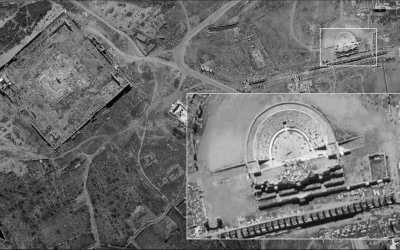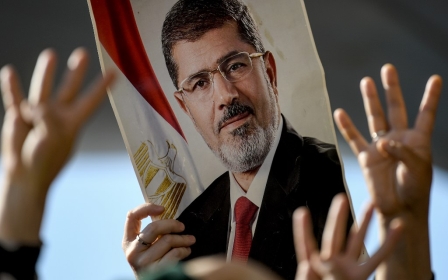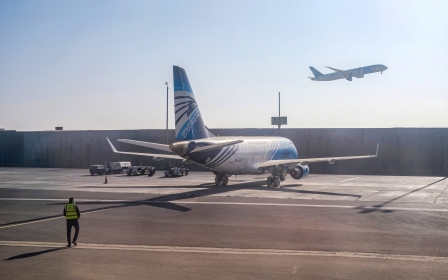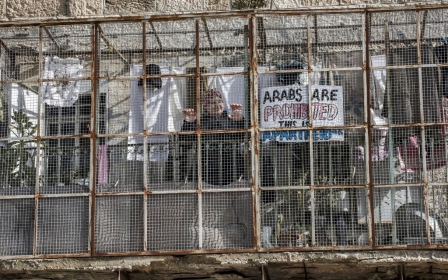Arabic press review: Egypt pledges to release hundreds of political prisoners

Egypt to pardon prisoners of conscience
Egypt intends to release hundreds of prisoners of conscience in the coming days, in an attempt to improve its image abroad, Egyptian sources have claimed, according to Al-Quds al-Arabi.
The sources, who spoke on condition of anonymity, said that Egyptian President Abdel Fattah el-Sisi was to issue a presidential pardon that would include detainees tried in political cases.
Meanwhile, the Egyptian prosecutor will order the release of several prisoners of conscience held in pre-trial detention pending political cases.
The sources said that the amnesty and release decisions were part of an attempt to improve the Egyptian government's image internationally, following increased criticism over human rights violations in the country.
New MEE newsletter: Jerusalem Dispatch
Sign up to get the latest insights and analysis on Israel-Palestine, alongside Turkey Unpacked and other MEE newsletters
The decisions were also made ahead of the inauguration of US President-elect Joe Biden, who has been highly critical of Egypt's record on human rights, according to the newspaper.
Sources from the Egyptian Journalists Syndicate revealed that among those to be released are Khaled Dawoud, former head of the Constitution Party, Hossam Monis, former campaign spokesman for presidential candidate Hamdeen Sabahi, and Hisham Fouad. All three are journalists.
Dawoud had been arrested by during a security crackdown in September 2019.
Dawoud and the other defendants faced charges such as "joining in a terrorist group", “spreading fake news” and “misusing social media platforms”.
Syrian and Israeli officials meet at Russian military base
Russia's Hmeimim military base in Syria’s Latakia last month hosted a meeting between Syrian and Israeli officials under Russian auspices, Saudi newspaper Asharq Al-Awsat said, quoting the Jusoor Center for Studies.
The officials discussed several issues of common interest, including Tel Aviv's demand for the withdrawal of Iranian forces in Syria, according to the report.
No official comment about the meeting was issued by Damascus or Tel Aviv.
The meeting was attended by Syria’s director of the National Security Bureau, Major General Ali Mamlouk, and Bassam Hassan, the presidential palace security adviser. For Israeli side, Gadi Eisenkot attended on behalf of the general staff, in the presence of the commander of the Russian forces in Syria, Alexander Shaikov, the newspaper reported.
“The Syrian delegation requested the facilitation of Syria’s return to the Arab League and financial aid in order to pay off the country’s debts to Iran, in addition to the lifting of western sanctions, in order to enable Damascus to remove Iranian forces,” Jusoor said.
“The Israelis demanded the complete removal of Iran’s forces and militias, the formation of a government that includes the opposition and the restructuring of the security and military establishment.”
Last Tuesday, Israel launched a series of raids on Iranian and Syrian targets in eastern Syria, near the border with Iraq, in the most intense attacks in recent months, killing 57 people, according to the Syrian Observatory for Human Rights.
Libyan wheat shortage leads to bread crisis
Bakeries in Libya closed due to a severe shortage of flour caused by a lack of supplies and confusion in import operations, Al-Araby Al-Jadeed newspaper reported.
“There is a severe shortage of bread flour, amid indications that the government has run out of strategic stocks," the head of the Bakeries Syndicate, Khurais Mohammed, said. He pointed out that some bakeries had barely enough supplies to operate for a few more days, a problem that required governmental intervention.
Libyans have reported that many bakeries around the country have closed, while others have raised the price of bread.
There are 4,160 bakeries across Libya, in addition to 57 flour mills, and the country consumes about 1.26m tonnes of grain annually, the report said.
Libya imported 95 percent of its wheat, it added.
Kuwait investigates Iranians arriving illegally by sea
Kuwaiti citizens intercepted five Iranians entering the country illegally, prompting the Ministry of Interior to open an investigation, according to an exclusive news report by the Kuwaiti newspaper Al-Qabas.
The five entered Kuwait by sea, and hid in chalets on the beaches of Mina Abdullah with five other individuals, according to the newspaper.
Al-Qabas said that after receiving reports from citizens, security teams went to the site, where they found five Iranians, who were taken into custody for investigation.
Kuwaiti Minister of Interior Thamer al-Ali ordered an investigation committee to look into the incident and how the Iranians managed to enter territorial waters.
The ministry said in a statement that security forces, in cooperation with several citizens, were able to arrest 10 people who had tried to infiltrate the country from the sea. The nationality of the five other infiltrators was not immediately clear.
* Arabic press review is a digest of reports that are not independently verified as accurate by Middle East Eye
Middle East Eye delivers independent and unrivalled coverage and analysis of the Middle East, North Africa and beyond. To learn more about republishing this content and the associated fees, please fill out this form. More about MEE can be found here.





